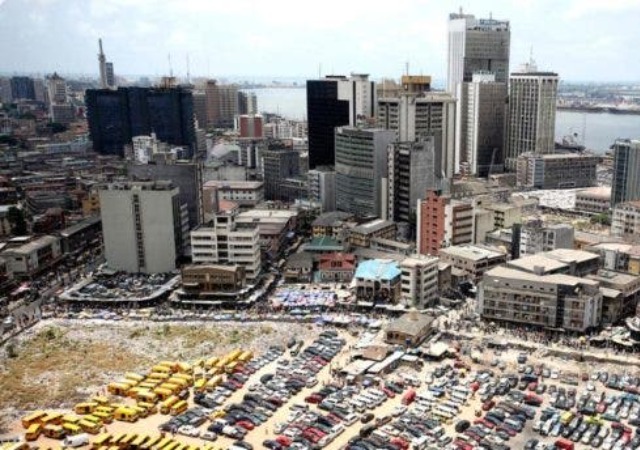
On Monday, President Muhammadu Buhari launched an ambitious plan by Nigeria to entirely power its economy with gas by the year 2030.
Nigeria, the sixth largest gas country and ninth in gas export, consumes very little of the resources.
Nigeria’s plan, as outlined by President Buhari at a pre-summit conference of the Nigeria International Petroleum Summit in Abuja, is to leverage on the huge gas reserves to become not just a major exporter but to become a major gas consuming nation.
The President who spoke to participants virtually said government agencies and operators need to do more to make the plan a reality.
He said gas has the potential to diversify and uplift the economy, given the country’s potential of about 600trillion cubic feet of gas and the rising global demand for cleaner energy sources.
He explained that this has offered Nigeria an opportunity to exploit its gas resources for the good of the country.
He stressed. “We intend to seize this opportunity.”
He explained that before the declaration of Year 2020 as “The Year of Gas, this Administration had shown commitment to the development of Nigeria’s vast gas resources and strengthening of the gas value chain by reviewing and gazetting policies and regulations to enhance operations in the sector as encapsulated in the National Gas Policy of 2017.
“Our major objective for the gas sector is to transform Nigeria into an industrialized nation with gas playing a major role and we demonstrated this through enhanced accelerated gas revolution”.
Despite the lack of focus on gas development in the past, he said Nigeria has benefited immensely from the resource.
He stated that Nigeria Liquefied Natural Gas, NLNG, which contributes about one percent to GDP, has generated $114 billion in revenues over the years, $9 billion in taxes, $18 billion in dividends to the Federal Government and $15 billion in feed gas purchase.
Also speaking at the event, the Minister of State Petroleum Resources, Chief Timipre Sylva said Nigeria’s enormous gas resource would enable it tackle the energy poverty in the country, to generate electricity and power its industries.
Sylva pointed at the deal to build the $10 billion train-7 by the shareholders of NLNG, despite the disruption that happened last year, as a pointer to the potentials available in the sector. He urged the operators to show faith and confidence in the Nigerian environment, saying the government has bent-over backward to accommodate their demands.
He expressed the commitment of the Buhari’s administration to get a new law for the industry through the Petroleum Industry Bill, PIB, saying the law would be passed soon.
He noted that the solution to most of the industry’s challenges would come through the PIB.
“The PIB, the National Assembly have confirmed their commitment and have shown commitment that the PIB will be passed in April, hopefully. If not in April, I am sure that in a few months from now the PIB will be passed”.
He expressed concern that efforts by the government to make the environment conducive for the operators have not been matched by required investments from the operators.
“As government is trying to bend over backward on a lot of provisions in the PIB, in our engagements with investors, is that going to attract the investments into Nigeria.
In spite of the fact that we have bent over backwards are the investors ready to invest? “Because in a situation where, for example, a company, I don’t want to mention the name although I am very tempted to because the COO is looking at me, will decide to invest $16 billion in a challenged environment, an LNG project in Mozambique that is challenged like Nigeria, but will be stalling on investment in Nigeria where it is not actually spending any money because most of it is from debt.
He added, “Those are the concerns we have too. We must see commitments from our investors that when we bend over backwards, they will also be bending over backwards and encouraging us by investing. That is really the meeting point that we need. That meeting point will give a PIB that is going to ensure the growth of this sector in Nigeria.”
Mallam Mele Kyari, the Group Managing Director of the Nigerian National Petroleum Corporation, pointed out that even though Nigeria was belatedly shifting its focus on gas, a lot could still be done.
Kyari observed that oil majors have not in the past treated the domestic market as a business, which led to under supplying of the product to domestic users. He said a lot has been done to boost the development of the resource in the past few years.
“Nigeria under the visionary leadership of President Muhammadu Buhari has committed huge resources to ensure that domestic gas infrastructure reach every corner of our country, to deepen Natural gas utilization, spur investment in power and gas-based industries, grow the economy and generate employment for millions of our young people”.
Mr. Tony Attah, the Managing Director of Nigeria NLG on his part stated that Nigeria currently plays a significant role in the global energy sector, holding the position of the largest oil and gas producer in Africa and the sixth supplier of global LNG through the operations of Nigeria LNG Limited.
“Our Train 7 project alone will attract about$10 billion into the country with significant revenue generation for government and our shareholders but also over 12,000 jobs opportunity for Nigerians”.
Speaking on behalf of operators, the Chairman of Oil Producers Trade Section, OPTS, and Managing Director/CE of Total E&P Nigeria, Mr. Michael Sangster called for a fiscal regime that would attract investment to gas sector.
While acknowledging Nigeria’s huge potential’s in gas reserves, he noted that investments in gas infrastructure was still lacking.
Sangster urged the government to create the enabling environment for investment to come in by creating a market of “willing buyers, willing sellers”.



















